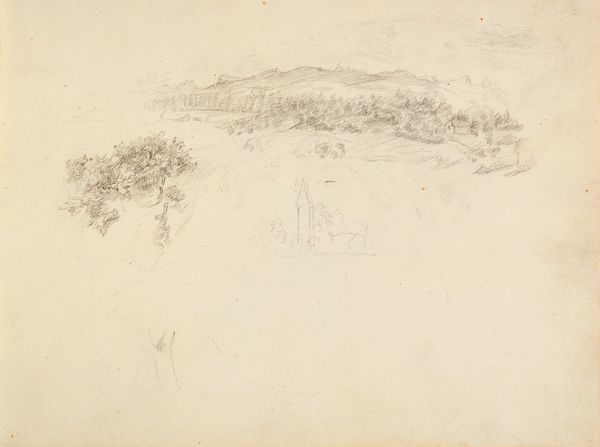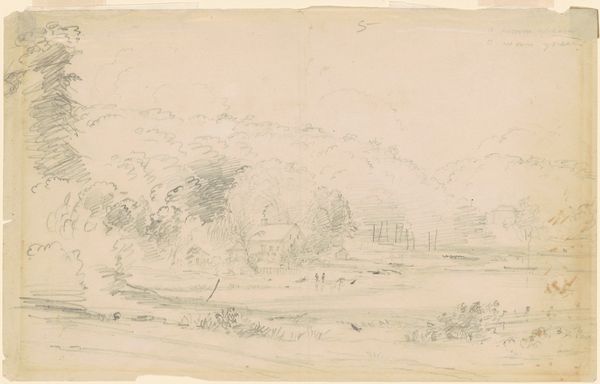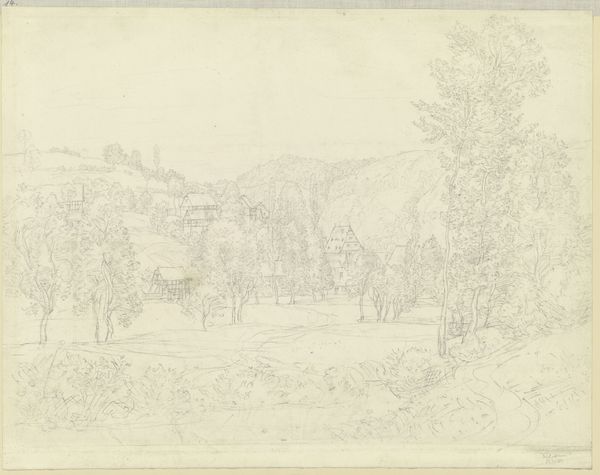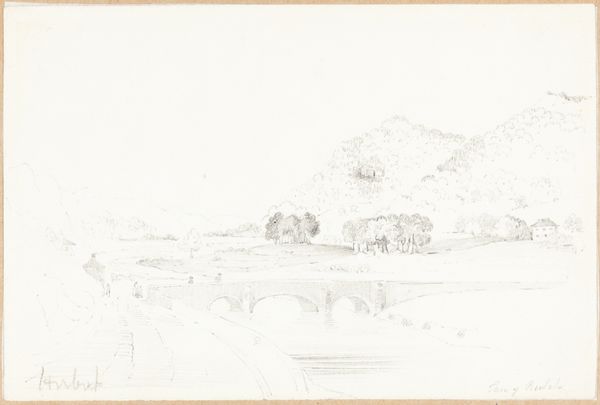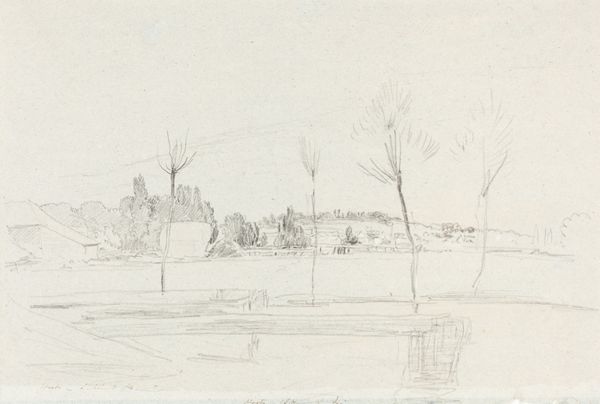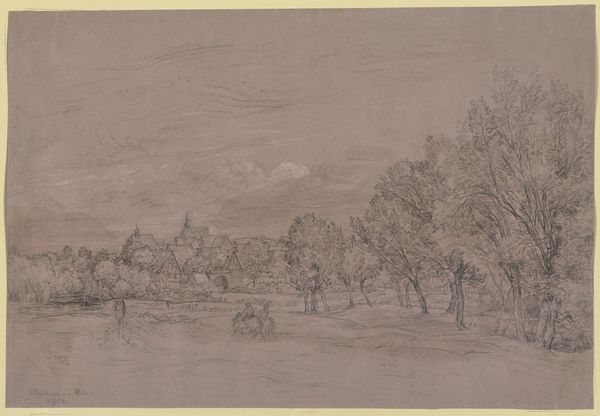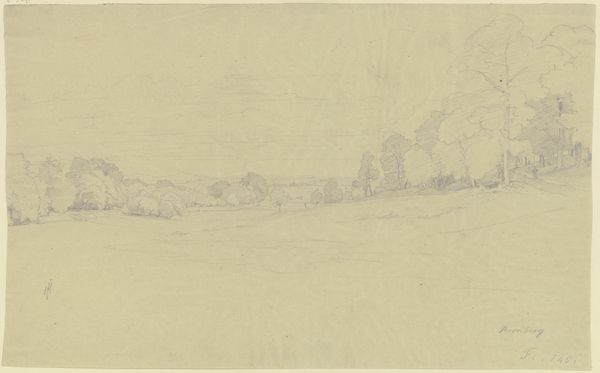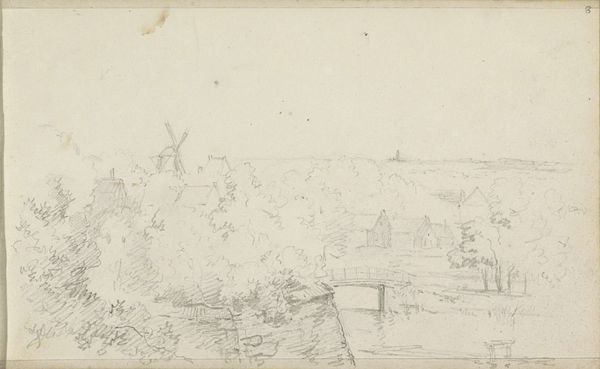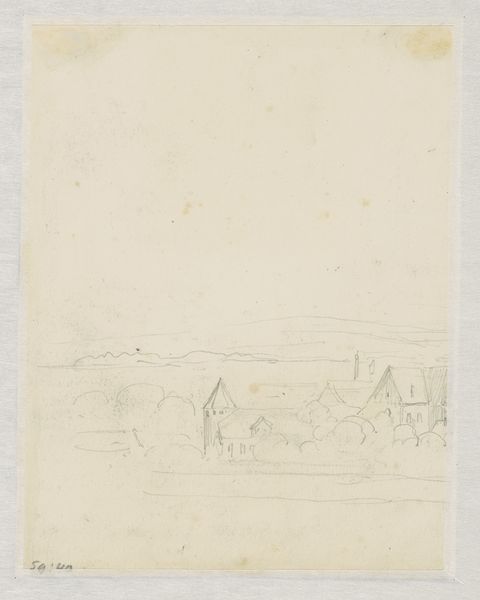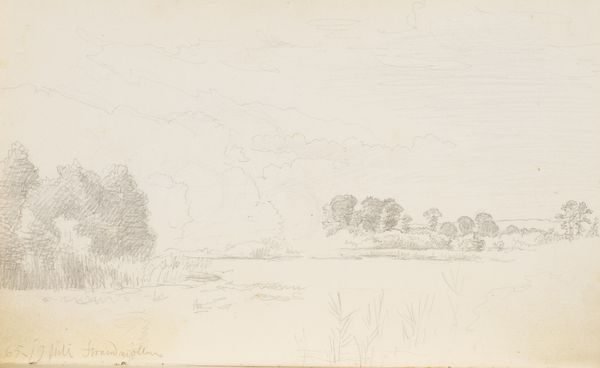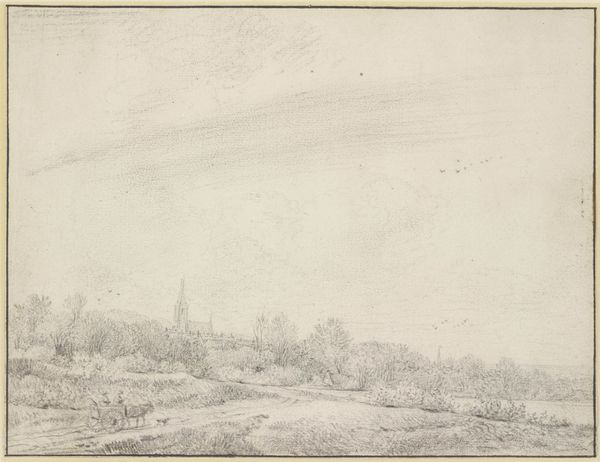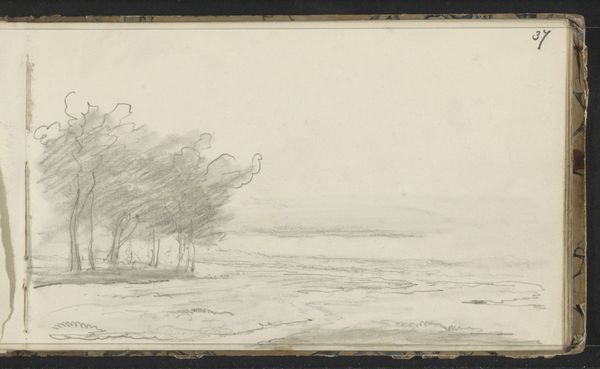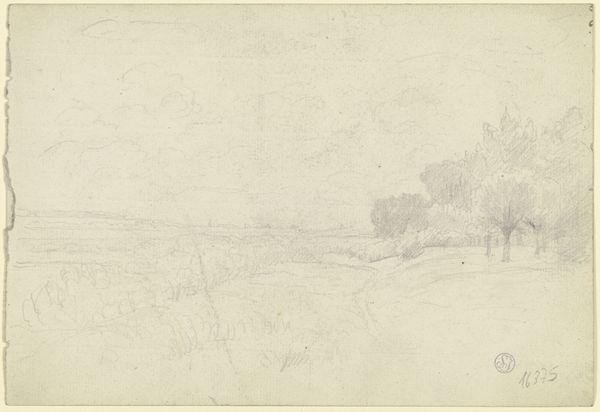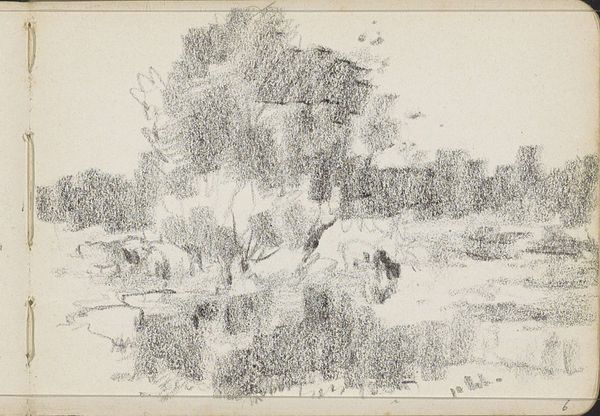
View of Wilson House and Gardens (recto); View of Wilson House and Gardens (verso) c. 1760s
0:00
0:00
drawing, print, plein-air, paper, pencil, chalk, black-chalk
#
drawing
# print
#
plein-air
#
landscape
#
paper
#
england
#
pencil
#
chalk
#
black-chalk
Dimensions: 230 × 384 mm
Copyright: Public Domain
Richard Wilson made this graphite drawing, "View of Wilson House and Gardens," in 18th-century Britain, a time when landscape was more than just scenery; it was a statement. The drawing itself is unassuming, but it reflects a growing interest in the picturesque – an aesthetic ideal that valued a carefully constructed, idealized view of nature. Country estates, like the one depicted, were symbols of wealth and power, subtly reinforcing the social hierarchy. Wilson, trained in London's art institutions, gained fame for his ability to capture the beauty of the British countryside. By framing the landscape in a certain way, and aestheticizing country estates, artists like Wilson contributed to the ongoing construction of British identity. To understand this drawing more deeply, one might consult historical records of British estates, and the writings of art critics like John Ruskin. The art historian, after all, is a social historian, always looking at the role of the image in shaping social and institutional structures.
Comments
No comments
Be the first to comment and join the conversation on the ultimate creative platform.
